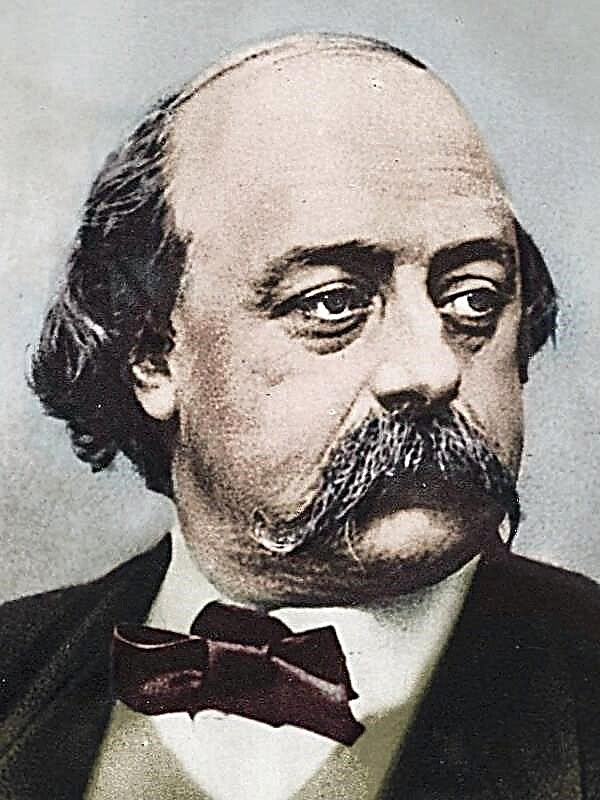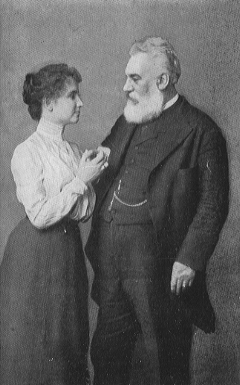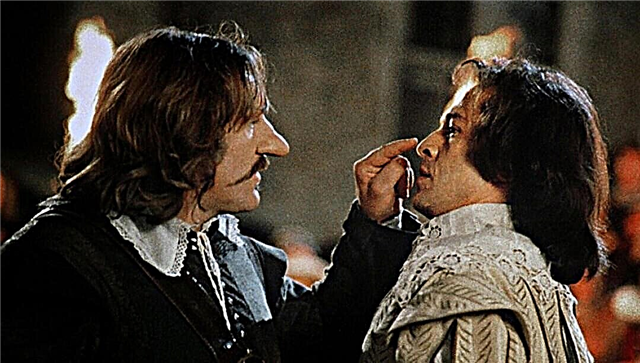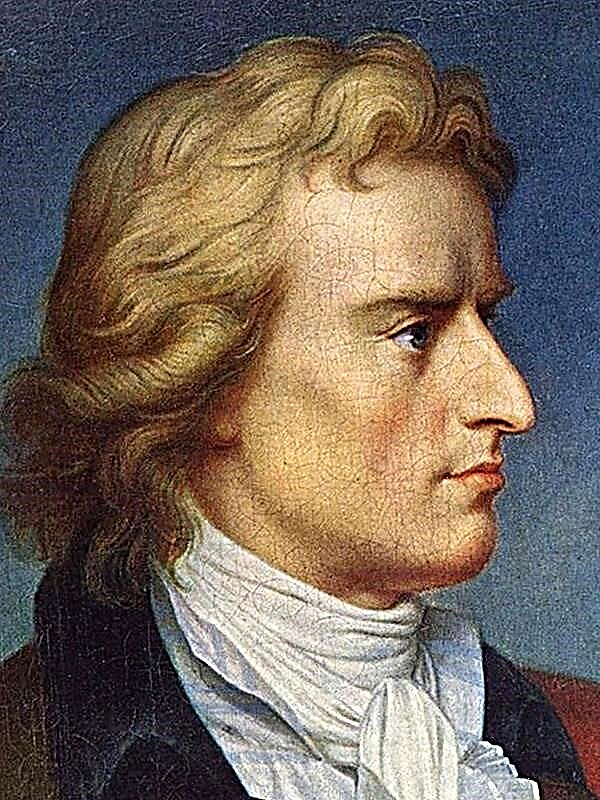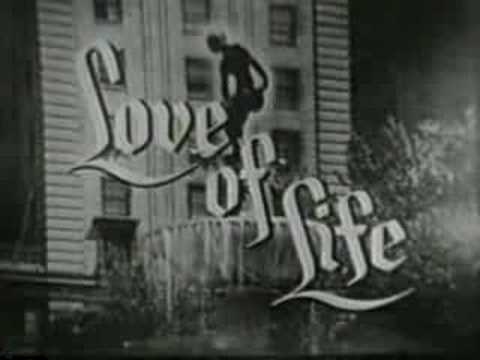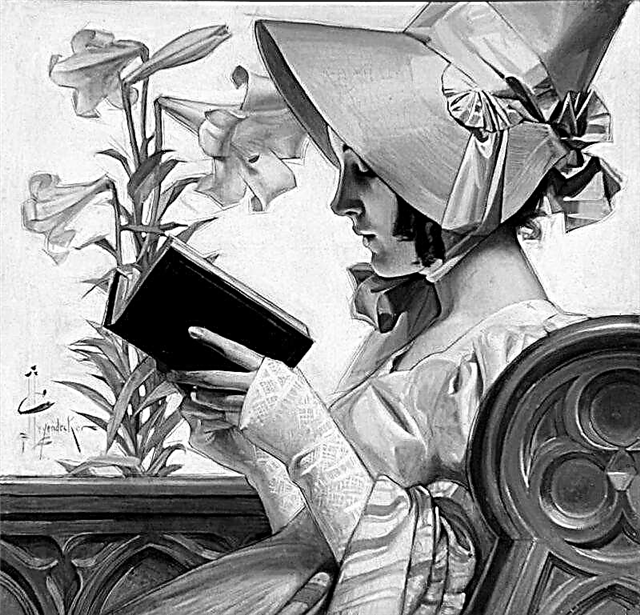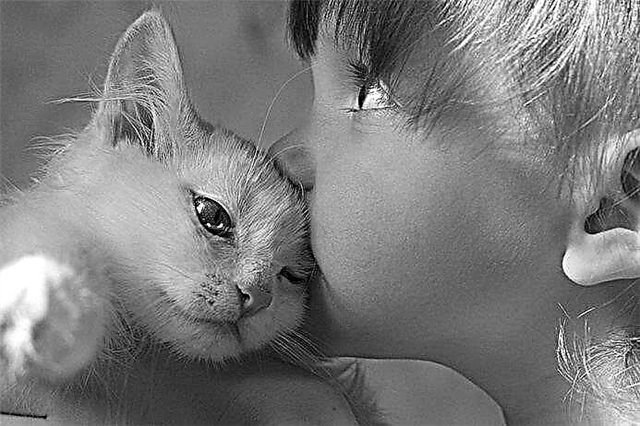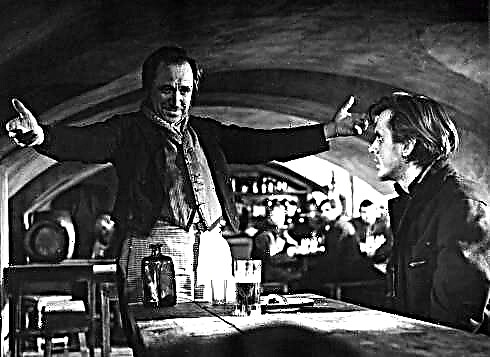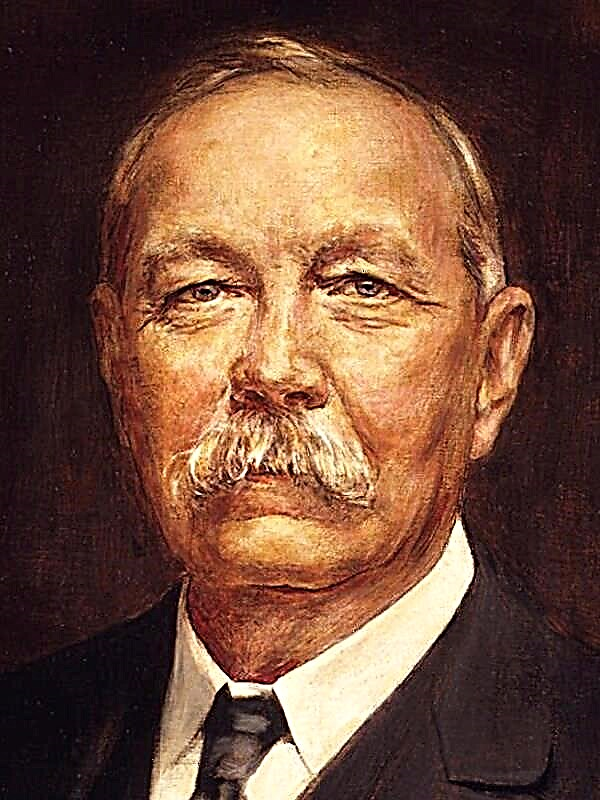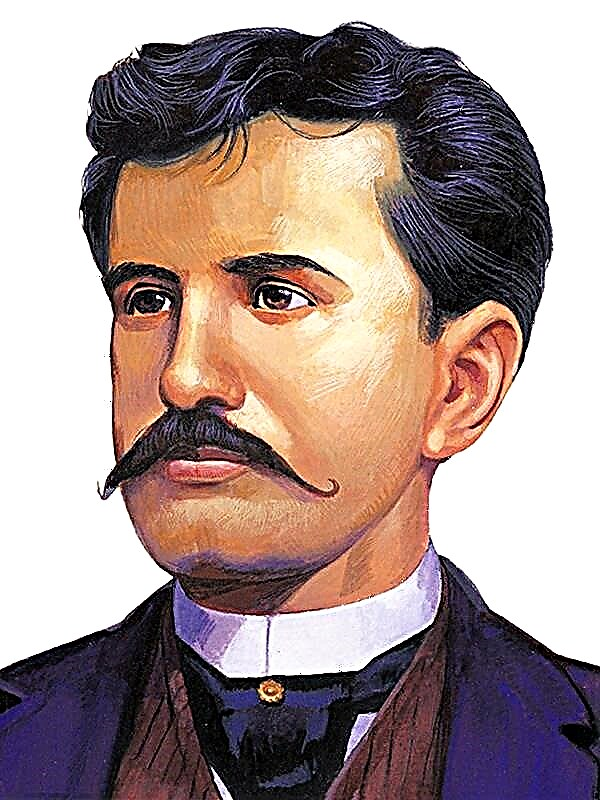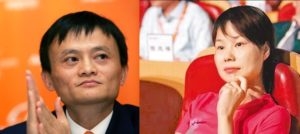In the village house of Darya Mikhailovna Lasunskaya, a noble and wealthy landowner, a former beauty and a metropolitan lioness, who still organizes a salon far from civilization, they are waiting for a certain baron, scholar and expert in philosophy who promised to introduce her scientific research.
Lasunskaya is talking to the audience. This is Pigasov, a poor man who is cynical (his hobby is attacks on women), the secretary of the landlady Pandalevsky, the home teacher of the younger children Lasunskaya Basistov, just graduated from university, the retired staff captain Volintsev with his sister, wealthy young widow Lipina, and daughter Lasunskoy - still very young Natalya.
Instead of the expected celebrity, Dmitry Nikolayevich Rudin arrives, whom the baron instructed to deliver his article. Rudin is about thirty-five years old; he is dressed quite ordinary; he has a wrong, but expressive and smart face.
At first, everyone feels somewhat constrained, the general conversation is poorly adjusted. Pigasov revives the conversation, as usual attacking “high matters”, abstract truths that are based on beliefs, and the latter, according to Pigasov, do not exist at all.
Rudin inquires from Pigasov, is he convinced that beliefs do not exist? Pigasov stands his ground. Then the new guest asks: “How do you say that they are not? Here is one for the first time. ”
Rudin fascinates everyone with his erudition, originality and logical thinking. Bassists and Natalia listen to Rudin, holding their breath. Daria Mikhailovna begins to ponder how she will bring out her new “acquisition”. One Pigasov is unhappy and pouting.
Rudin is asked to talk about his student years in Heidelberg. There is a lack of color in his narrative, and Rudin, apparently aware of this, soon switches to general discrepancies - and here he again captivates the audience, since he "possessed almost the highest music of eloquence."
Daria Mikhailovna persuades Rudin to stay the night. The rest live nearby and go home, discussing the outstanding talents of a new acquaintance, and Basistov and Natalya, impressed by his speeches, cannot fall asleep until morning.
In the morning, Lasunskaya begins to take every possible care of Rudin, whom she firmly decided to decorate her salon, discusses with him the advantages and disadvantages of her village environment, and it turns out that Mikhailo Mikhaylych Lezhnev, a friend of Lasunskaya, has long been well known to Rudin as well.
And at this moment, the servant reports the arrival of Lezhnev, who visited Lasunskaya on a minor economic occasion.
Meeting old friends is pretty cold. After Lezhnev takes off, Rudin tells Lasunsky that her neighbor only wears a mask of originality to hide the lack of talent and will.
Having descended into the garden, Rudin meets Natalia and starts a conversation with her; he speaks fervently, convincingly, speaks of the shame of cowardice and laziness, of the need for everyone to do business. Rudinsky animation affects the girl, but Volintsev, who is not indifferent to Natalia, does not like it.
Lezhnev in the company of Volintsev and his sister recalls his student years when he was close to Rudin. The selection of facts from Rudin’s biography is not to Lipina’s liking, and Lezhnev does not finish the story, promising to tell him more about Rudin another time.
In the two months that Rudin spends with Lasunskaya, she simply becomes necessary for her. Accustomed to spin in a circle of witty and sophisticated people, Daria Mikhailovna finds that Rudin can overshadow any metropolitan orbit. She admires his speeches, however, in practical matters, she is still guided by the advice of her manager.
Everyone in the house is trying to fulfill the slightest whim of Rudin; Basist is especially reverent to him, while the common favorite almost does not notice the young man.
Rudin twice declares his intention to leave the hospitable house of Lasunskaya, referring to the fact that he had all the money left, but borrowed it from the mistress and Volintsev - and remains.
Most often, Rudin talks with Natalia, who eagerly listens to his monologues. Under the influence of Rudin's ideas, she herself has new bright thoughts, a “holy spark of delight” flares up in her.
Affects Rudin and the theme of love. According to him, there are currently no people daring to love strongly and passionately. Rudin, in his own words, penetrates the very soul of the girl, and she ponders over what she heard for a long time, and then suddenly bursts into bitter tears.
Lipina again is trying to find out from Lezhnev what Rudin himself is: Without special hunting, he characterizes his former friend, and this characterization is far from flattering. Rudin, Lezhnev says, is not very well-versed, loves to play the role of the oracle and live at someone else's expense, but his main trouble is that, igniting others, he himself remains as cold as ice, not thinking that his words “may embarrass, destroy a young heart. "
Indeed, Rudin continues to grow flowers of his eloquence in front of Natalia. Not without coquetry, he speaks of himself as a person for whom love no longer exists, indicates to the girl that she should opt for Volintsev. As a sin, it was Volintsev who became an accidental witness to their lively conversation - and this is extremely difficult and unpleasant for him.
Meanwhile, Rudin, like an inexperienced youth, seeks to force things. He confesses love to Natalia and from her achieves the same confession. After the explanation, Rudin begins to convince himself that now he is finally happy.
Not knowing what to do, Volyntsev retires in his most grim mood. Quite unexpectedly, Rudin appears in front of him and announces that he loves Natalia and is loved by her. Irritated and perplexed, Volintsev asks the guest: why does he tell all this?
Here Rudin embarks on a long and colorful explanation of the motives for his visit. He wanted to achieve mutual understanding, he wanted to be frank ... Volintsev, who is losing control over himself, sharply replies that he didn’t ask for trust at all and that Rudin’s excessive frankness bothers him.
The initiator of this scene is also upset and blames himself for recklessness, which brought nothing but insolence on the part of Volintsev.
Natalya sets up a date for Rudin in a secluded place where no one could see them. The girl says that she confessed to her mother in everything, and she condescendingly explained to her daughter that her marriage with Rudin is completely impossible. What now does her chosen one intend to do?
The confused Rudin, in turn, inquires: what does Natalya herself think about all this and how does she intend to act? And almost immediately he comes to the conclusion: it is necessary to submit to fate. Even if he is rich, Rudin argues, will Natalya be able to endure “violent termination” with her family, arrange her life against the will of her mother?
Such cowardice strikes a girl in the heart. She was going to make any sacrifices in the name of her love, and her beloved was scared at the first obstacle! Rudin is trying to somehow soften the blow with the help of new exhortations, but Natalya no longer hears it and leaves. And then Rudin shouts after her: “You are a coward, not me!”
Left alone, Rudin stood still for a long time and sorted out his feelings, admitting to himself that in this scene he was insignificant.
Insulted by Rudin’s revelations, Volintsev decides that under such circumstances he is simply obliged to challenge Rudin to a duel, but his intention is not given to come true, since a letter comes from Rudin. Rudin verbally announces that he does not intend to make excuses (the content of the letter just confirms the opposite), and notifies his departure “forever”.
When leaving, Rudin feels bad: it turns out that he was kicked out, although all decency was respected. Out of habit, Rudin, who was accompanying him to Basist, began to express his thoughts about freedom and dignity out of habit, and said so figuratively that tears appeared in his eyes. Rudin himself cries, but these are “proud tears.”
It takes two years. Lezhnev and Lipina became a successful married couple, got a red-cheeked baby. They host Pigasov and Basistov. The bassists are happy news: Natalia agreed to marry Volintsev. Then the conversation switches to Rudin. Little is known about him. Rudin has recently lived in Simbirsk, but has already moved from there to another place.
And on the same May day, Rudin trudges in a poor carriage along a country road. At the postal station, he was told that there were no horses in the direction Rudin needed and it was not known when they would, however, you could go the other way. After some thought, Rudin sadly agrees: “I don’t care: I’ll go to Tambov.”
A few years later, an unexpected meeting between Rudin and Lezhnev takes place in the provincial hotel. Rudin talks about himself. He changed many places and activities. He was a sort of home secretary with a wealthy landowner, he was engaged in land reclamation, taught Russian literature at the gymnasium ... And everywhere he failed, he even became afraid of his unhappy fate.
Reflecting on the life of Rudin, Lezhnev does not console him. He speaks of his respect for the old comrade, who, with his passionate speeches, love of truth, perhaps fulfills the “highest purpose”.
On July 26, 1848, in Paris, when the uprising of the "national workshops" was already crushed, a tall gray-haired man appears on the barricade with a saber and a red banner in his hands. A bullet interrupts his invocation.
“The Pole was killed!” - such is the epitaph uttered on the run by one of the last defenders of the barricade. "Hell!" - the other answers him. This “Pole” was Dmitry Rudin.

